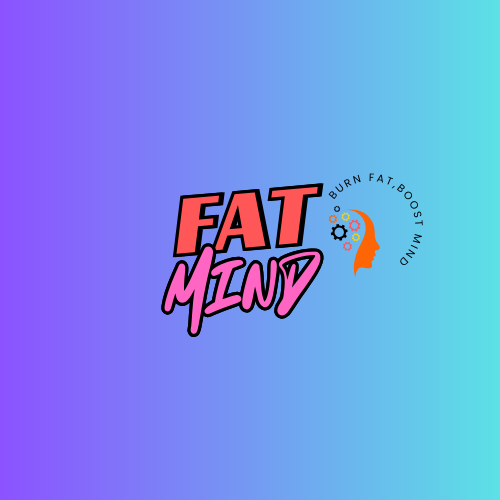Introduction: The Science Behind Intermittent Fasting
Intermittent fasting (IF) is more than just a weight loss strategy it is a powerful metabolic tool that enhances both fat burning and brain function. By cycling between periods of eating and fasting, the body shifts from glucose dependence to fat metabolism, reducing belly fat and improving cognitive performance.
This approach has gained attention not just for its fat-burning effects but also for its ability to boost mental clarity, memory, and brain health. This article explores how intermittent fasting works, its impact on belly fat reduction, and its role in cognitive function.
How Intermittent Fasting Helps Reduce Belly Fat
Enhances Fat Metabolism
- When fasting, insulin levels drop, allowing the body to burn stored fat for energy.
- The body shifts to ketosis, a state where it primarily uses fat as fuel instead of glucose.
- This metabolic switch leads to significant belly fat reduction over time.
Reduces Insulin Resistance
- Chronically high insulin levels contribute to abdominal fat storage.
- IF helps improve insulin sensitivity, making it easier to burn fat rather than store it.
Lowers Cortisol and Inflammation
- High stress hormones like cortisol promote belly fat accumulation.
- Fasting helps regulate cortisol levels, reducing stress-induced weight gain.
- IF also lowers inflammatory markers, preventing fat accumulation linked to chronic inflammation.
Increases Human Growth Hormone (HGH) for Fat Loss
- Fasting boosts HGH levels, a key hormone involved in fat burning and muscle preservation.
- Higher HGH levels support faster metabolism and efficient fat loss, particularly around the abdomen.
How Intermittent Fasting Boosts Cognitive Function
Promotes Brain-Derived Neurotrophic Factor (BDNF)
- BDNF is a protein that supports neuron growth, learning, and memory.
- IF increases BDNF levels, improving brain plasticity and mental clarity.
Reduces Brain Inflammation
- Chronic inflammation is linked to cognitive decline and brain fog.
- Fasting helps reduce oxidative stress, protecting brain cells from damage.
Enhances Mitochondrial Function and Energy Production
- IF improves mitochondrial efficiency, ensuring stable energy levels and mental focus.
- This helps prevent fatigue and cognitive slowdown during the day.
Supports Autophagy and Brain Detoxification
- Autophagy is the body’s process of removing damaged cells and toxins.
- Fasting triggers autophagy in the brain, reducing the risk of neurodegenerative diseases.
Best Intermittent Fasting Methods for Belly Fat and Brain Health
16:8 Method
- 16-hour fasting window, 8-hour eating period
- Ideal for fat loss, mental clarity, and metabolic health
- Easy to maintain for long-term sustainability
18:6 Method
- Slightly longer fasting period for enhanced fat burning
- Helps further reduce belly fat and inflammation
5:2 Method
- Two days per week of very low-calorie intake (500–600 calories)
- Effective for gradual fat loss and metabolic flexibility
Alternate-Day Fasting
- Fasting every other day while eating normally on non-fasting days
- Helps boost brain function and accelerate belly fat loss
How to Maximize Results from Intermittent Fasting
Prioritize Whole, Nutrient-Dense Foods
- Focus on healthy fats (avocados, nuts, olive oil), lean proteins, and fiber-rich vegetables.
- Avoid processed foods, refined sugars, and trans fats, which contribute to inflammation.
Stay Hydrated
- Drink plenty of water, herbal teas, or black coffee during fasting periods.
- Hydration supports brain function, digestion, and fat metabolism.
Combine Fasting with Exercise
- Strength training and cardio during fasting periods enhance fat burning.
- Workouts improve cognitive function by increasing BDNF production.
Get Enough Sleep
- Poor sleep disrupts hormones that control appetite and fat storage.
- Quality sleep enhances brain function and fasting benefits.
Conclusion: Using Intermittent Fasting for a Healthier Body and Mind
Intermittent fasting is a powerful tool for reducing belly fat and improving cognitive function. By shifting the body into fat-burning mode and enhancing brain health, IF provides sustainable benefits for both physical and mental well-being.
The key to success lies in choosing the right fasting method, eating nutrient-rich foods, and staying consistent for long-term results.
FAQ
1. How long does it take to see belly fat loss with intermittent fasting?
Most people notice visible fat loss within 4-8 weeks, depending on diet, exercise, and consistency.
2. Can I drink coffee during fasting periods?
Yes, black coffee, herbal teas, and water are allowed during fasting and may even enhance fat-burning effects.
3. Does intermittent fasting improve memory and focus?
Yes, IF increases BDNF levels, reducing brain fog and improving memory, concentration, and learning ability.
4. Is intermittent fasting safe for everyone?
While IF is generally safe, individuals with medical conditions, pregnancy, or eating disorders should consult a doctor before starting.
5. Can intermittent fasting prevent neurodegenerative diseases?
Studies suggest that fasting may reduce the risk of Alzheimer’s and Parkinson’s disease by promoting autophagy and reducing inflammation.
